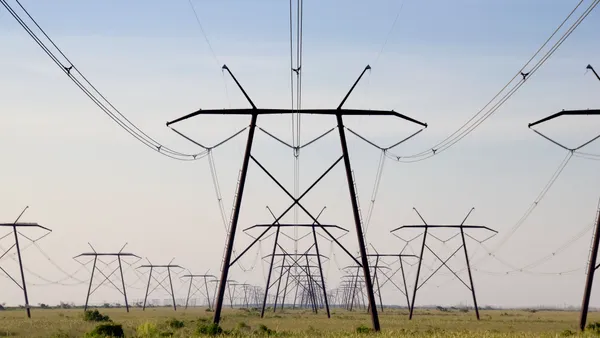Dive Brief:
- The three major electric utility associations endorsed two U.S. senators’ calls to probe into who disclosed an internal Federal Energy Regulatory Commission (FERC) report on threats to the power grid. The disclosure came in a Wall Street Journal (WSJ) article that cited the document as saying a coordinated attack on just nine transmission substations in the U.S. could cripple the grid and produce a nationwide blackout.
- The senators, Democrat Mary Landrieu of Louisiana and Republican Lisa Murkowski of Alaska, sought Department of Energy inspector general attention to the disclosure, which they said might be criminal and certainly jeopardized security. In Senate floor remarks, Murkowski called out Jon Wellinghoff, immediate past chairman of FERC, criticizing him for participating in the WSJ story with “sensational,” possibly “reckless” comments.
- Wellinghoff defended his role in publicizing the grid threats, declaring the FERC report information was not secret in any way, and said he and a FERC official had discussed it with hundreds of people last year in an effort to get protective action taken. He did not explicitly acknowledge he “leaked” the report to the Journal, but implied it.
- The utility associations – Edison Electric Institute, American Public Power Association and National Rural Electric Cooperative Association – supported the call for investigation but also defended the industry. “Our industry has long been working to improve grid security in a collaborative effort with our government partners,” they said.
Dive Insight:
It's gotten ugly out there. Some FERC commissioners have made not-so-veiled attacks on Wellinghoff for raising grid security alarms with his participation in the WSJ article, and an earlier one on the same subject. Sen. Murkowski made no bones about her perception of his actions. And the utility industry clearly feels threatened by an implication it hasn’t done anything to protect itself. Maybe it's also threatened by a bill introduced in the House and Senate last week to give FERC stronger authority over grid security. A similar bill failed to pass several years ago, but now it would seem to have a better chance. The industry dreads the potential for heavy-handed regulation.












